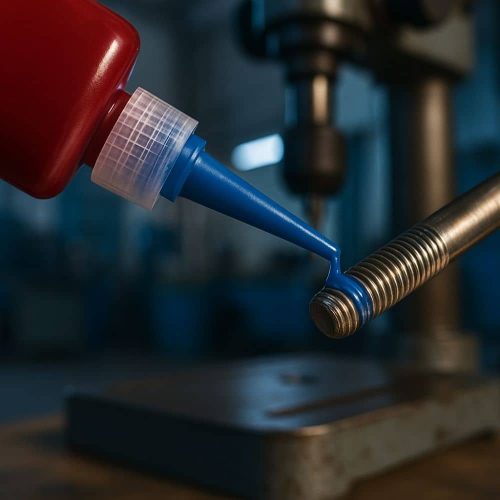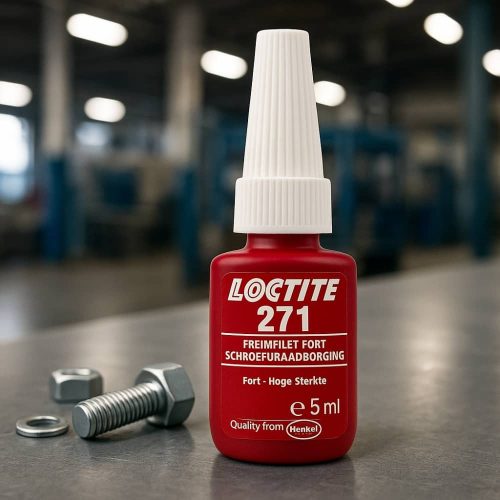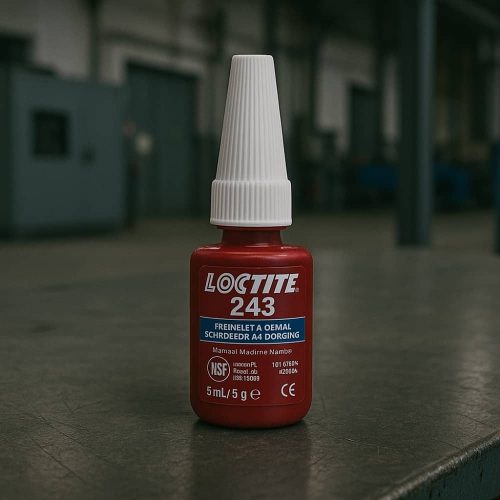La anaerobic resin is a single-component technical adhesive that cures in the absence of air (in an anaerobic environment) and in contact with metals.
It is used for’thread sealingthe bearing mounting and theprecision mechanical assembly.
Unlike conventional adhesives, anaerobic resin remains liquid in the open air and only hardens when confined between two metal surfaces.
This property gives it unique advantages in terms of mechanical strength, watertightness and protection against vibration.



La anaerobic resin has established itself as a standard in industrial sectors requiring reliability, safety and productivity.
Fluid or medium viscosity formulation, ideal for protection of threaded connections against fluid or gas leaks.
High-strength formulation, perfect for assembly of bearings on shafts or mechanical housings. Prevents play and wear.
Used for blocking of metal partsfor securing pins or shafts, with high mechanical resistance properties.
At ADDEV Materialswe select silicone resins comply with the most stringent requirements:
We can support your production, maintenance or assembly projects with reliable, field-proven solutions.
Are you looking for anaerobic resin Loctite for thethread sealingthe bearing mounting or a assembly lock industry?
📩 Contact our experts for a personalised recommendationa sample or a quick quotation.
It polymerises in the absence of air when confined between two metal parts, forming a solid, airtight seal.
A specific formula for waterproofingviscosity, adapted to the pressure and the type of fluid used. Our experts can advise you on the right viscosity.
Yes, depending on the resistance selected: low, medium or high. Some references require controlled heating for disassembly.
Varies according to temperature and substrate: initial setting in 5 to 20 minutes, complete polymerisation in 24 hours.
No, it is designed for metals. On plastics, it may not polymerise properly or may damage the material.